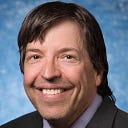From rainy Cheshire to sunny Southern California, exploring outer space, meeting Richard Feynman, and back again: the adventures of writer Nicholas Booth.
You may be familiar with Nicholas Booth as an accomplished British journalist, broadcaster, and writer. He’s the author of several books, including the acclaimed Zigzag: The Incredible Wartime Exploits of Double Agent Eddie Chapman, which was favorably reviewed in the New York Times, and, most recently, The Thieves of Threadneedle Street: The Incredible True Story of the American Forgers Who Nearly Broke the Bank of England, the true-life tale of American forgers in the Victorian era who attempted to steal the equivalent of millions of dollars from the Bank of England. He is also a friendly presence on Twitter (tweeting under the handle @thievesbook) and other social media. But back in his teenage days he had a different ambition: to join the US space program, become an astronaut, and participate in the first manned expedition to Mars (presuming that ever transpired).
The English ceremonial county of Cheshire, where Nick grew up, first in Nantwich and then in Sandbach, is often cold and rainy (or snowy), especially in the winter. Fierce winds chill residents to the bone, who, fortified by mugs of tea, are a stalwart lot used to bracing, changeable weather. Denizens of southern California, in contrast, enjoy mild weather practically year-round. Yet when skies are clear at night, those living in such vastly different places can view the same moon, stars, and planets and wonder about the mysteries of the cosmos.
Young Nick had been fascinated by astronomy since the age of five. He managed, when he was still a high school student, to make the acquaintance of the late Sir Patrick Moore, the renowned British amateur astronomer who achieved great success as a writer and broadcaster, including the quintessential television show for star-watchers, “The Sky at Night,” aired for many decades by the BBC. Nick also came to know Dr. Garry Hunt, then with University College, London, who had been working with JPL (Jet Propulsion Laboratory) scientists on NASA’s Voyager space mission. In 1981, the two notables recommended him for a seven week visiting summer position at JPL. Soon, he was off to Altadena, California, its headquarters — close to the better-known city of Pasadena, each in Los Angeles County.
By sheer coincidence, Nick’s first day on the job happened to be his 17th birthday. He joined the Comet Science Team, headed by Dr. Ray Newburn.
Propitiously, one of the most prominent JPL researchers, Dr. Albert “Al” Hibbs (known as the “Voice of JPL”) and his wife Marka invited Nick to lodge at their house for the summer. The Hibbs family resided in a comfortable two-story American Craftsman Style house in Altadena with a bucolic outdoor pool and a verdant garden.
Hibbs had a colorful career, including adventures with Roy Walford in trying to beat roulette wheels in Reno and Las Vegas, designing Explorer I, the first U.S. satellite to orbit the Earth (launched in 1958), educating about science on various television shows, completing a PhD under the supervision of Richard P. Feynman, co-authoring a physics textbook with Feynman, and so forth. Al and Marka Hibbs were also known for their themed April Fools Day costume parties, which Feynman and many others attended.
The Hibbs family were very welcoming to Nick. They introduced him to many of their friends, including Feynman, artist Jirayr “Jerry” Zorthian, actor Burgess Meredith (who portrayed The Penguin on the Batman television show), and many others.
One of the scientific highlight of Nick’s visit was Voyager 2’s flyby of Saturn on August 25, 1981. The spacecraft came within 101,000 kilometers (63,000 miles) of that ringed planet. Monitors in the JPL cafeteria displayed footage of that momentous occasion, which brought much attention to the lab.
Nick headed back to England at the end of that eventful summer. The experience helped him launch a career in science journalism. He returned to California many times thereafter and remained in touch with Al and Marka Hibbs.
In February 1988, Richard Feynman died of cancer. His wife Gweneth passed away the following year. After she died, the Hibbs family inherited their beloved dog Tara.
Nick relates an anecdote from a 1990 visit to the Hibbs family. One day, they were playing a video of a Feynman television appearance, when Tara ran frantically into the room. She had apparently recognized her late master’s voice. It is a story Nick often likes to tell, and he gets a lump in his throat each time.
Nick’s extensive experience with space missions came in handy when he authored two books about the subject Space: The Next 100 Years (1990) and Exploring the Solar System: New Views of the Solar System (1995). After living for some time in London, he has returned to his native Cheshire, where he and his wife share their home with several Cheshire Cats, including one named Treacle.
Nicholas Booth’s books can be found on Amazon.com and at local booksellers. He tweets as @thievesbook.
Paul Halpern is the author of fifteen popular science books, including The Quantum Labyrinth: How Richard Feynman and John Wheeler Revolutionized Time and Reality.
